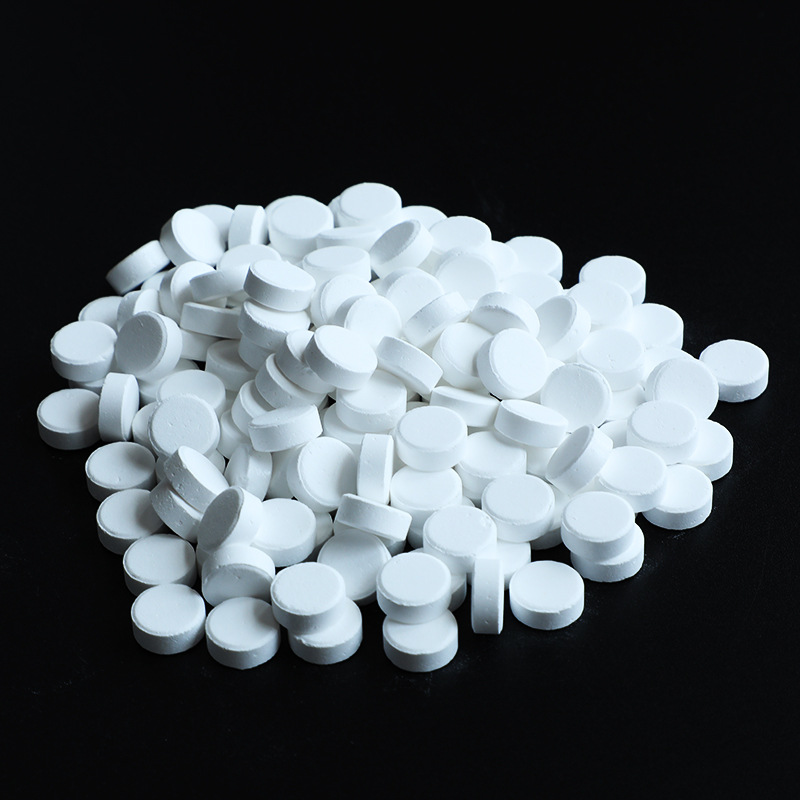Maintaining a clean and safe swimming environment is essential for any pool owner. One of the most critical aspects of pool maintenance involves managing the chlorine levels in your water. Selecting the right swimming pool chlorine tablets can significantly enhance your pool’s sanitation, ensuring it remains a healthy place for enjoyment. In this article, we will explore how to choose effective chlorine tablets, including options that are both affordable and high-quality.

I.Understanding the Role of Chlorine Tablets
Chlorine tablets serve as a primary sanitizer for pool water, helping to eliminate bacteria, algae, and other harmful contaminants. They come in various sizes and formulations, with 3-inch tablets being particularly popular due to their long-lasting effectiveness. By choosing the right chlorine tablets, you can achieve optimal water quality and minimize the frequency of reapplication.
II.The Benefits of Using Chlorine Tablets
Using chlorine tablets offers several advantages over other forms of chlorine, such as liquid solutions or granular chlorine. First, they provide a slow and steady release of chlorine into the water, ensuring consistent sanitation. This slow-dissolving action helps to maintain stable chlorine levels, reducing the need for constant monitoring and adjustment.
Moreover, many chlorine tablets are stabilized, meaning they contain cyanuric acid. This chemical protects chlorine from being broken down by ultraviolet rays from the sun, which is particularly beneficial for outdoor pools. Stabilized chlorine tablets help maintain effective sanitation even in sunny conditions, which ultimately saves time and money.
III.Choosing the Right Swimming Pool Chlorine Tablets
When selecting the right swimming pool chlorine tablets, there are several factors to consider:
a.Size Matters:
The most common sizes of chlorine tablets are 1-inch and 3-inch varieties. For larger pools, 3-inch tablets are often the better choice. They dissolve more slowly and provide longer-lasting sanitation, making them a more efficient option for maintaining proper chlorine levels.
b.Quality vs. Price:
While it may be tempting to go for the cheapest option available, investing in cheap but good chlorine tablets can pay off in the long run. Look for products that offer a balance between affordability and effectiveness. Quality tablets will dissolve consistently and provide reliable sanitation without needing excessive amounts.
c.Stabilized vs. Unstabilized:
Choose stabilized chlorine tablets if you want to minimize chlorine loss due to sunlight exposure. These tablets help keep chlorine levels stable and reduce the frequency of reapplications. On the other hand, un-stabilized chlorine tablets may be more appropriate for indoor pools or situations where sunlight exposure is minimal.
IV.Utilizing 3-Inch Chlorine Tablets for Optimal Performance
3-inch chlorine tablets for pools are particularly beneficial for several reasons. Their size allows for a gradual dissolution rate, which is ideal for keeping chlorine levels stable over time. Here are some tips for effectively using 3-inch tablets:
a.Dispenser Usage:
Use a chlorine floater or automatic chlorinator designed for 3-inch tablets. These devices ensure even distribution of chlorine throughout the pool, preventing localized over-concentration that can occur with manual addition.
b.Monitor Chlorine Levels:
Regularly test the chlorine levels in your pool to ensure they remain within the recommended range of 1-3 parts per million (ppm). If levels drop, you may need to add more tablets or adjust your floater settings.
c.Proper Storage:
Store chlorine tablets in a cool, dry place away from direct sunlight. Proper storage helps maintain their effectiveness and prevents them from breaking down prematurely.
V.Combining Chlorine Tablets with Other Sanitation Methods
While chlorine tablets are an effective way to keep your pool clean, consider supplementing them with other sanitation methods for enhanced water quality. Here are some options to explore:
a.Shock Treatments:
Regularly shock your pool with a high dose of chlorine to eliminate contaminants and organic matter. Shocking is especially important after heavy usage or following rainstorms.
b.Algaecides:
Use algaecides to prevent algae growth, especially in warmer months. Combining algaecides with chlorine tablets can enhance overall sanitation and reduce the risk of algae blooms.
c.Mineral Purifiers:
These systems use minerals to help reduce chlorine usage while maintaining effective sanitation. They can complement chlorine tablets, allowing for a more balanced approach to pool care.
VI.Troubleshooting Common Issues
Even with the best chlorine tablets, pool owners may encounter issues with water clarity and sanitation. Here are some common problems and their solutions:
a.Cloudy Water:
If your pool water appears cloudy, check the chlorine levels first. Inadequate chlorine can lead to cloudiness. Additionally, consider running the pool filter longer or using a clarifier to help clear the water.
b.Strong Chlorine Odor:
A strong chlorine smell often indicates chloramines, which form when chlorine combines with contaminants. To eliminate chloramines, shock the pool with a high dose of chlorine.
c.Testing Water Regularly:
Make it a habit to test your pool water at least once a week. Regular testing helps you maintain proper chemical balance and prevents issues before they escalate.

VII.Conclusion
Choosing the right swimming pool chlorine tablets is essential for effective pool maintenance. By considering factors like size, quality, and stabilization, you can ensure that you select the most suitable option for your pool. Utilizing 3-inch chlorine tablets can enhance sanitation efficiency, and combining them with additional methods will lead to optimal water quality. With proper monitoring and care, you can enjoy a clean and safe swimming environment all year round.

 Instant
Quote
Instant
Quote Email
Us
Email
Us